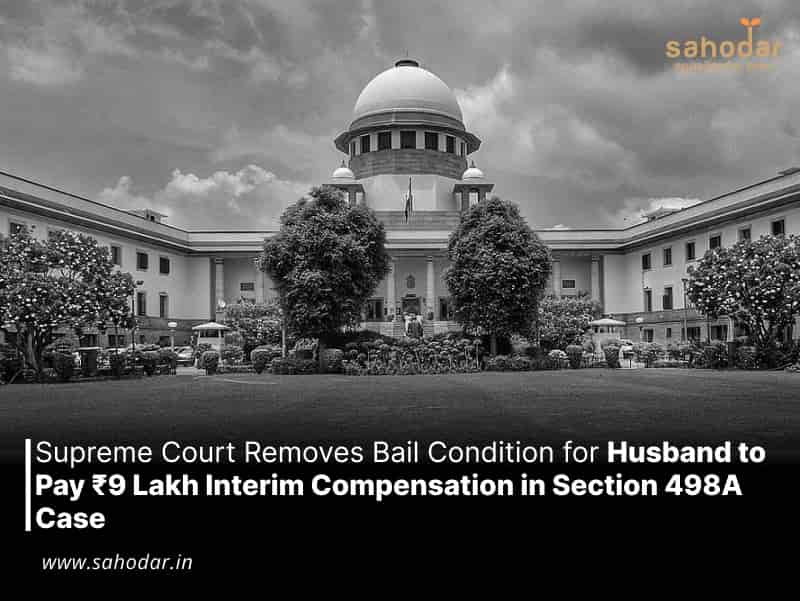A bench of Justices Sanjiv Khanna and SVN Bhatti said that the High Court was not justified in imposing the condition on the husband to pay ₹9 lakh to his estranged wife as ad-interim compensation.
The Supreme Court has recently invalidated a condition for anticipatory bail, as imposed by the Jharkhand High Court. This condition compelled the appellant, Mr. Rohit Jaiswal, who was facing charges of cruelty under Section 498A of the Indian Penal Code (IPC), to disburse ₹9 lakh as ad-interim compensation to his estranged wife. The case, denominated as “Rohit Jaiswal vs State of Jharkhand and anr,” saw a bench comprising Justices Sanjiv Khanna and SVN Bhatti determine that the imposition of such a condition by the High Court lacked justification.
“We are of the opinion that the High Court was not justified in imposing the condition that the appellant – Rohit Jaiswal should deposit ₹9,00,000 as ad interim victim compensation. The said condition is hereby deleted. We clarify that we have not interfered with the grant of anticipatory bail and other conditions as imposed,” the bench stated in its order passed on September 27.
The aforementioned observations and consequential judgment were rendered during the resolution of appeals lodged by the husband, challenging a prior order issued by the Jharkhand High Court in April of the preceding year.
In the antecedent High Court ruling, anticipatory bail had been granted to the appellant, with the stipulation that he furnish ₹9 lakh as interim compensation for the victim.
In its ultimate verdict, the Supreme Court duly acknowledged the husband’s concurrence to augment the monthly maintenance allocation for his wife, elevating it from ₹4,000 to ₹10,000 per month, a course of action recommended by the Court itself.
“The maintenance amount is being enhanced in view of the statement made by the learned counsel appearing on behalf of the appellant to ₹10,000 per month. The appellant – Rohit Jaiswal will continue to make payment in terms of the statement. In case of default, respondent no.2/ informant will be entitled to take steps/recourse for execution before the trial court,” the Court directed.
The Supreme Court has elucidated that the maintenance amount, which was initially determined based on the appellant’s statement, remains subject to potential modifications, including enhancements or reductions, at the discretion of either the trial court or the appellate court.
The legal representation for the appellant was undertaken by a team of advocates affiliated with VMZ Chambers, comprising Shreeyash U Lalit, Mahesh Kumar, Nikhilesh Kumar, Aman Preet Singh Rahi, Devika Khanna, and VD Khanna.
Conversely, advocates Madhusmita Bora, Pawan Kishore Singh, Dipankar Singh, Anupama Sharma, Amar Jyoti Sharma, and Vedika Dalmia served as counsel for the Jharkhand government.
Advocates MM Singh, Naveen Thakur, and Rameshwar Prasad Goyal represented the informant-wife in the proceedings.

